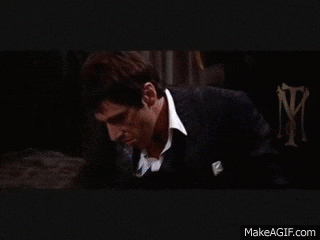- Please Consume
- Posts
- Deconstructing Tropes
Deconstructing Tropes
As we close out this week let’s talk about a music biopic about a musician that never existed.

Good morning Consumers, This is please consume, the film newsletter that has more subscribers than Tony Montana has mountains of cocaine.



Walk Hard: The Dewey Cox Story

Written by Tyler Clark
As we close out this week let’s talk about a music biopic about a musician that never existed. Okay hear me out: it’s Walk Hard: The Dewey Cox Story, the film that should have killed the music biopic 17years ago. It’s a movie so funny and poignant that the fact we still make biopics the way we do is kind of embarrassing.
Deconstructing Tropes
Walk Hard takes a sledgehammer to the well-worn tropes of musician biopics, exposing their predictability with relentless humor. Dewey Cox, portrayed by John C. Reilly, embodies the archetypal tortured artist, grappling with a troubled childhood, substance abuse, and tumultuous relationships. The film masterfully exaggerates these elements, serving as a comedic mirror to the often melodramatic portrayals seen in actual biopics.
The exaggerated moments of drug use, tumultuous relationships, and creative epiphanies become a comedic commentary on the genre's tendency to overemphasize these aspects and homogenize the lives of these figures. The film's musical performances, crafted with meticulous attention to detail, lampoon the formulaic progression of a musician's rise to stardom.
By doing so, "Walk Hard" not only mocks specific films like Walk the Line, but also unveils the broader predictability embedded in the music biopic formula.
The Case for Ending Music Biopic
After Walk Hard, the question arises: should we have reconsidered the music biopic altogether? The film, in its unapologetic parody, exposes the genre's susceptibility to formulaic storytelling.
By laughing at the clichés, Walk Hard inadvertently suggests that the genre has reached a point of creative exhaustion. The repetitiveness in narrative arcs, from the troubled early life to meteoric rise and inevitable fall, has become too familiar. The film effectively serves as a call to arms, encouraging filmmakers to break away from the constraints of this well worn path. Rather than perpetuating the same narrative structures, creators should seek fresh and innovative approaches to musical storytelling on the big screen. Walk Hard not only entertains, but also challenges the status quo, prompting a reflection on the genre's over reliance on familiar beats. Perhaps it's time to bid farewell to the traditional musician biopic and explore new avenues of storytelling within the rich and diverse world of music.
Point being, Walk Hard ends up not just as a great parody of Walk the Line but as a comedic force that advocates for the evolution of musical storytelling in cinema (or the total annihilation of it). Its satirical brilliance not only highlights the flaws within the genre but also serves as a comedic manifesto urging filmmakers to chart new territory in portraying the lives of musicians.
Now enjoy by far my favorite scene in the movie and maybe one of the scenes I quote most from any movie ever: Tim Meadows trying to talk Dewey out of doing drugs… it’s incredible.
Today’s Clip
